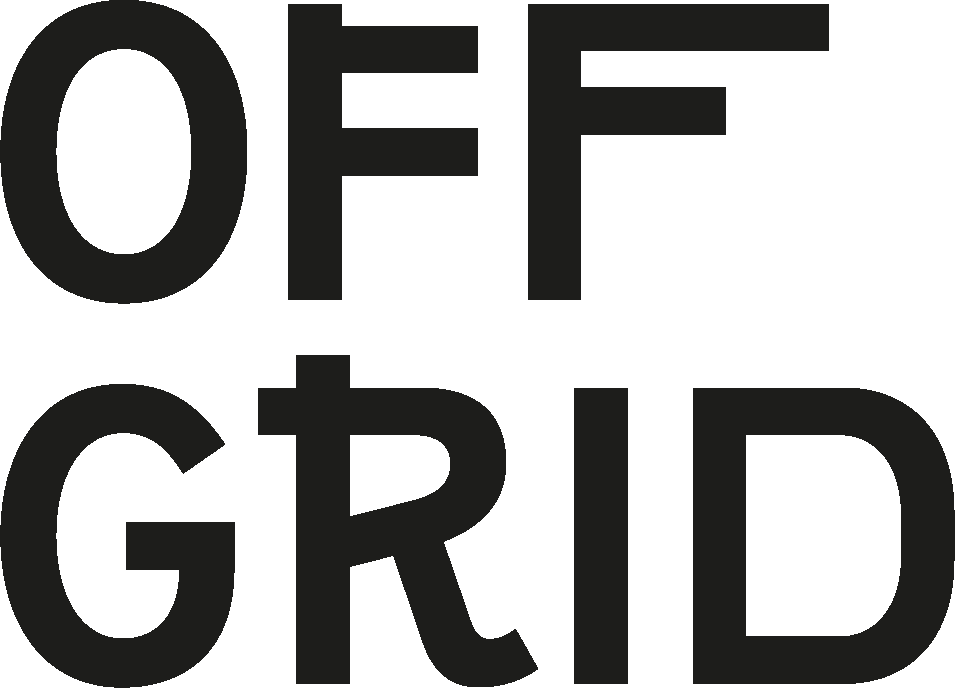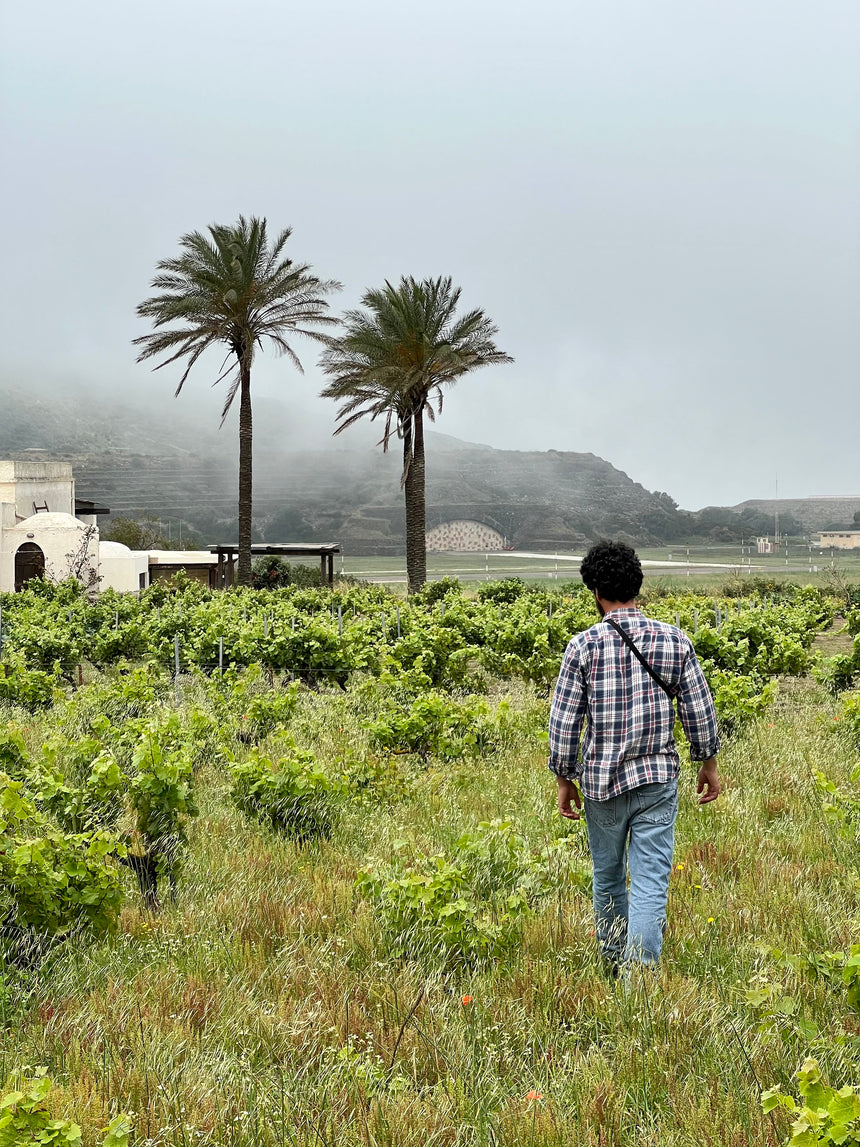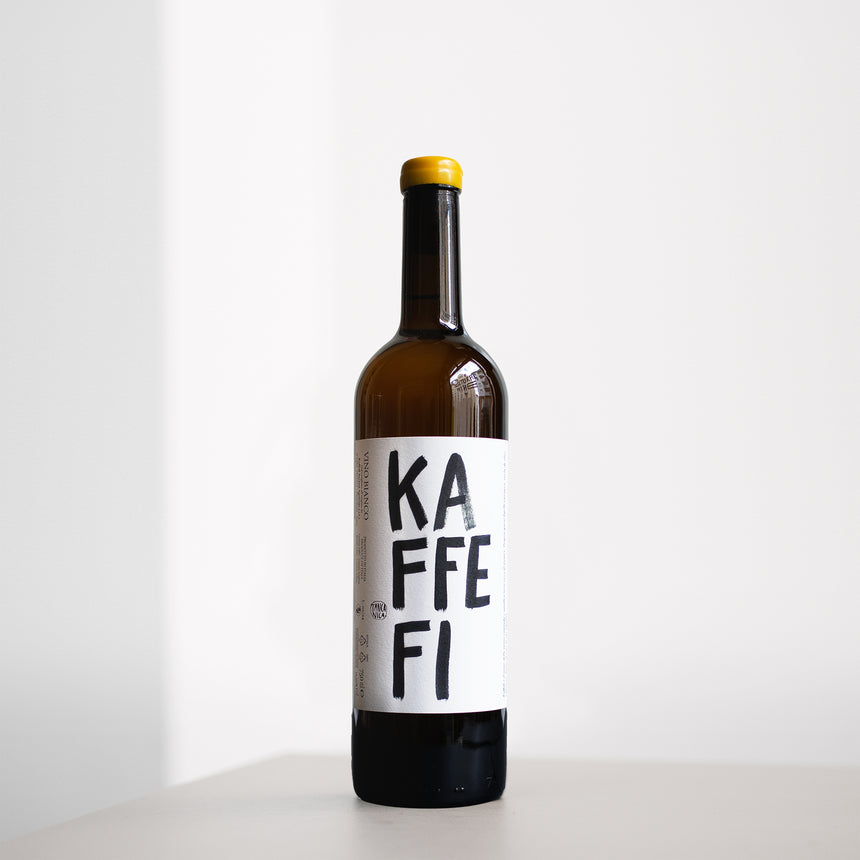Tanca Nica
Tanca Nica
Francesco Ferreri and Nicoletta Pecorelli
Pantelleria, Italy
Scroll down to see the wines
Tanca Nica is a winery on Pantelleria, a volcanic island cast in the middle of the Mediterranean Sea between Sicily and Tunisia. Winds blow almost constantly across a landscape of vines, scattered lava stone walls, rock formations and a wild mix of plants, herbs and fruits. The most common variety here is Zibbibo (known as Muscat de Alexandria in France), while other local varieties include Catarratto and Pignatello.
Nicoletta Pecorelli and Francesco Ferreri are the faces behind Tanca Nica: Nicoletta is originally from Sardinia, while Francesco was born on the island, son of a sailor. Francesco left Pantelleria to study and work in wineries around the world but, in the midst of a role at a winery in New Zealand, he felt his roots pulling him home.
The majority of the island’s vineyards have been cultivated for generations by the locals, with no commercial interest and rudimentary knowledge of winemaking, and the vines have never had contact with chemicals or been influenced by any other conventional treatment. Francesco tastes widely out of desire to learn as much as possible about Pantelleria, the varieties which grow here, and the terroir. The older farmers, with whom Francesco has a close dialogue, have a deep understanding of the island’s soils, while for them he is a source of knowledge on the winemaking itself. It is a relationship founded in mutual respect, that unites location, tradition and a love of the land.
Francesco and Nicoletta currently (2023) farm 2 ha split in 10 plots over 6 contradas (vineyard parcels) across the island. It is a small operation and although there are many abandoned vineyards which they could take on, they have decided to stay small, wanting to tend to the vineyards themselves.
In the 1960s, there were 6000 ha of vines growing here. By 2010, this had fallen to 500 ha. As they were abandoned, increasingly considered as too labour intensive for the result, nature began to restate its claim and swathes of vineyards are now wild shrubland (gariga). Although vineyards are still a significant part of the scenery, 60 years ago they must have been dominating.
It is a fascinating landscape, where nature and human civilisation merge almost seamlessly. Across the island, narrow terraces unfold (‘tanca nica’ in Pantesco, the Sicilian dialect spoken here), enclosed by lava stone walls made for grape- and vegetable-growing. Manmade houses blend fluidly with natural rock formations and it’s hard to discern where agriculture ends and wild nature begins.
Although the plots of vines are easier to distinguish, they grow intermingled with vegetables and herbs, both wild and cultivated. Fennel, capers, poppy and parsley are just a few examples, and plenty of olive trees that are pruned almost like bonsai, close to the ground and sprawling across the rocks next to the vineyards.
The constant winds keep everything dry. The cool mistral (magistrale) wind blows from the north and the hot sirocco (scirocco) from the Sahara in the south. So far, this has enabled Nicoletta and Francesco to work completely without plant protection, the opposing winds banishing the moisture which can lead to problems such as rot or mildew. 2023 was the first exception. May saw prolonged rainfall, when the grapes were already developing, and with the vines either in bloom or beyond this stage, it was the first time they considered spraying copper.
In general, though, the conditions are almost perfect for vines with a dry atmosphere and fertile volcanic soil. ‘The island is very generous’ said Francesco, after he harvested 40kg of zucchini the morning of our visit.
Francesco is driven by a desire to understand the island and its terroir. Where many would blend grapes from different vineyards, he makes numerous different wines from Zibibbo alone, some of them in tiny quantities. One day, Francesco says, he might make fewer wines, but for now his single vineyard wines are his path to understanding the island.


